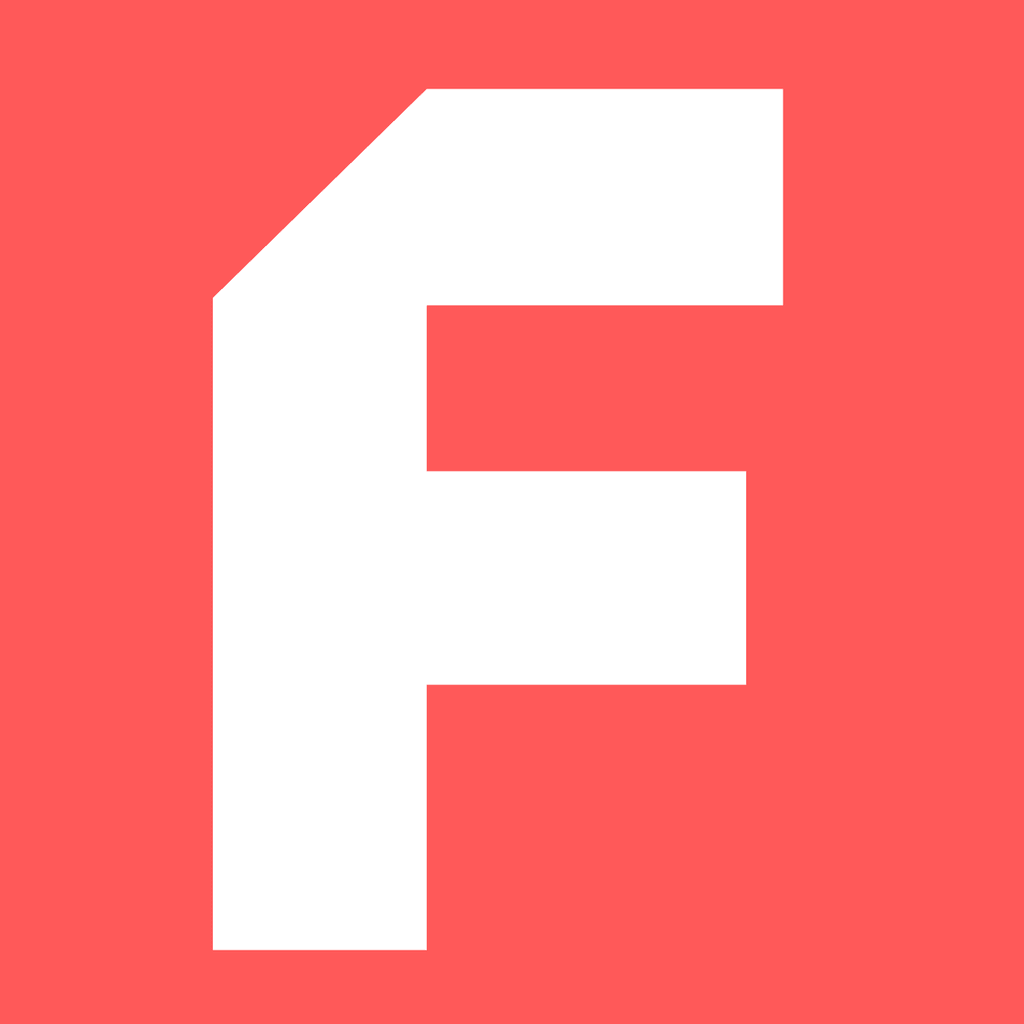How Julien Nahum Built a $37K/month Notion Extension in Record Time
How Julien Nahum Built a $37K/month Notion Extension in Record Time
Nov 15, 2024


Julien Nahum
Julien Nahum
⏳ 5 min
⏳ 5 min
Revenue/month
Revenue/month
$37,000
$37,000
$37,000
No. of founders
No. of founders
1
1
1
Startup costs
Startup costs
N/A
N/A
N/A
Company type
Company type
Company type
Saas
Saas
Saas
Contents
About The Founder
About The Founder
Meet Julien Nahum, a 28-year-old indie hacker who turned a scrappy weekend project into a thriving business. What started as a quick Notion add-on has become NoteForms, a powerful form-building tool, now generating $37,000 per month. Here’s how Julien leveraged speed, community, and smart product diversification to build a highly profitable tool, all while working on his own terms.
(A picture of Julien, founder of NoteForms)

Meet Julien Nahum, a 28-year-old indie hacker who turned a scrappy weekend project into a thriving business. What started as a quick Notion add-on has become NoteForms, a powerful form-building tool, now generating $37,000 per month. Here’s how Julien leveraged speed, community, and smart product diversification to build a highly profitable tool, all while working on his own terms.
(A picture of Julien, founder of NoteForms)

The Birth of NoteForms: Speed Was Everything
The Birth of NoteForms: Speed Was Everything
When Notion released its API, allowing developers to create products around their ecosystem, Julien saw an opening. The idea was simple: a form builder for Notion. “I built the first version in three or four days,” Julien recalls. His MVP was rough, but he wasn’t worried about perfection—he just wanted to be first.
Launching NoteForms (initially named NotionForms) as a scrappy prototype proved to be a brilliant move. The simplicity of it—connecting a Notion account and creating forms—struck a chord with users looking for exactly this kind of functionality. It was the first Notion extension of its kind, and people took notice.
(How NoteForms landing page looks like)
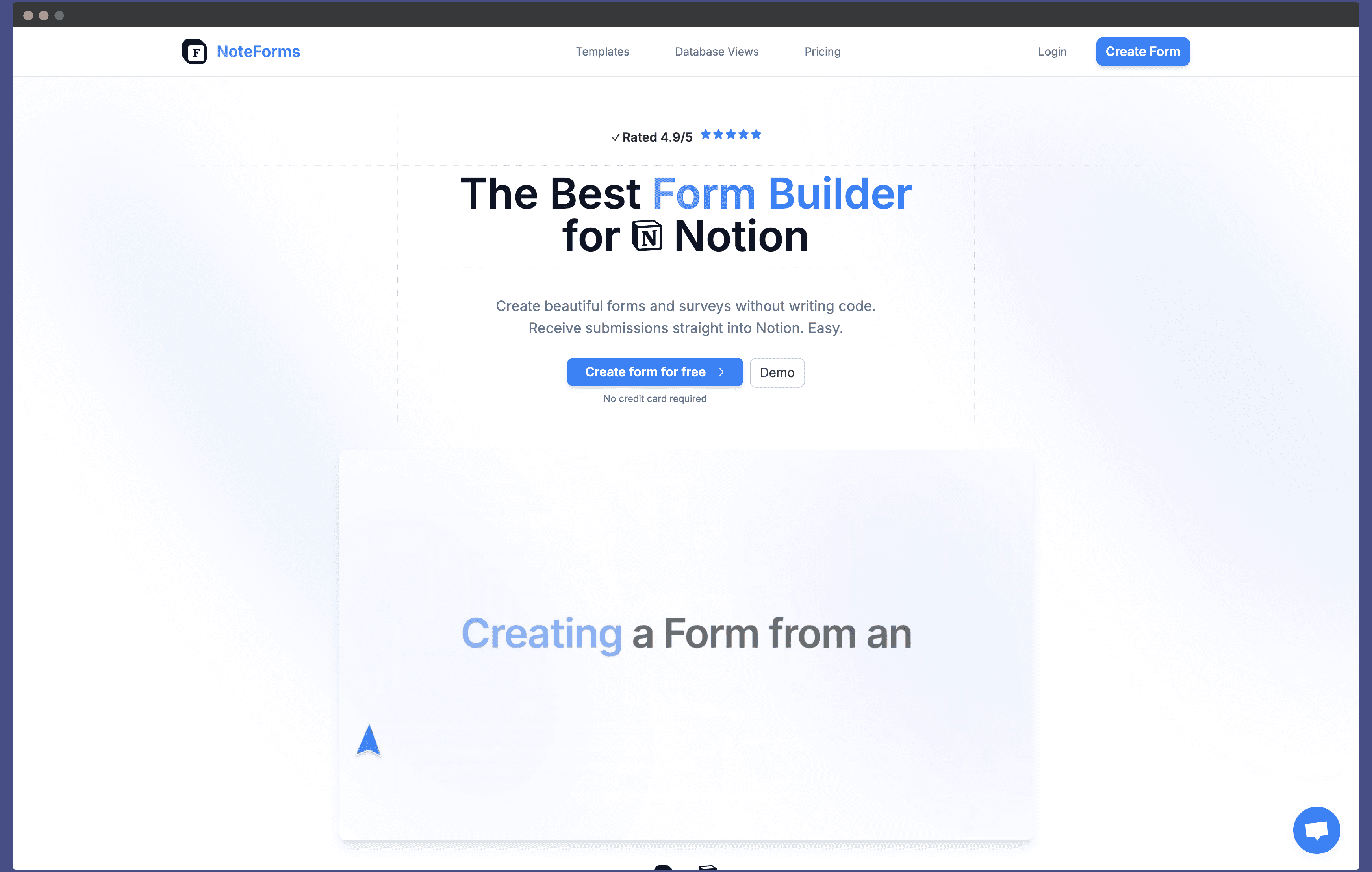
Over time, Julien added more features, layering in customization options, security features, and advanced Notion integrations. But he stayed close to his original setup, proving that you don’t need an army of developers or a mountain of cash to succeed. His tech stack still relies on PHP and Laravel, with just a bit of Nuxt for the frontend.
When Notion released its API, allowing developers to create products around their ecosystem, Julien saw an opening. The idea was simple: a form builder for Notion. “I built the first version in three or four days,” Julien recalls. His MVP was rough, but he wasn’t worried about perfection—he just wanted to be first.
Launching NoteForms (initially named NotionForms) as a scrappy prototype proved to be a brilliant move. The simplicity of it—connecting a Notion account and creating forms—struck a chord with users looking for exactly this kind of functionality. It was the first Notion extension of its kind, and people took notice.
(How NoteForms landing page looks like)

Over time, Julien added more features, layering in customization options, security features, and advanced Notion integrations. But he stayed close to his original setup, proving that you don’t need an army of developers or a mountain of cash to succeed. His tech stack still relies on PHP and Laravel, with just a bit of Nuxt for the frontend.
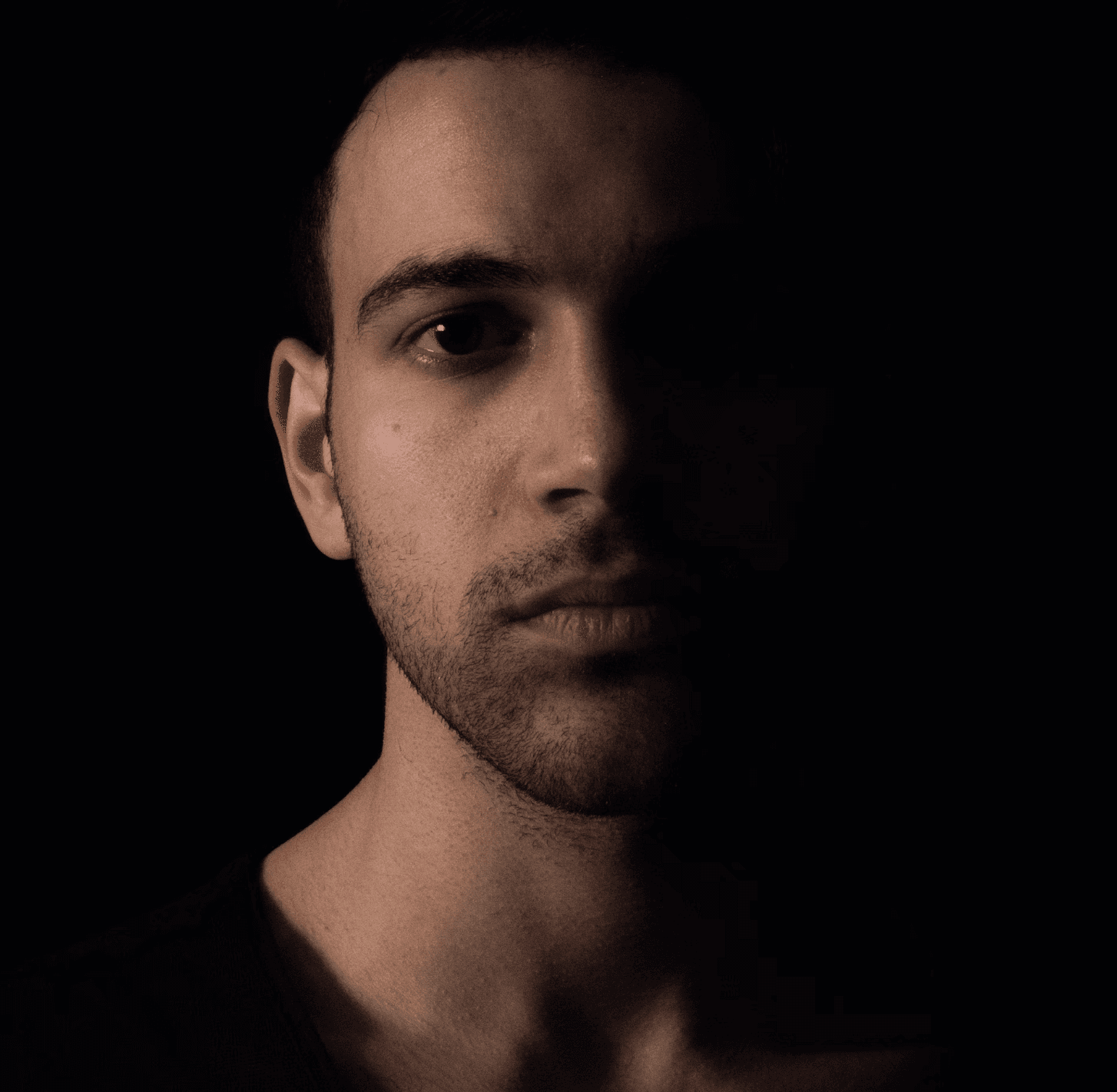
















2,678+ people enjoy it
➤ Every week, we dig up stories of how regular people started and grew their businesses—
➤ Plus the marketing hacks that won them customers.
➤ Then, we share those insights with you.
➤ Every week, we dig up stories of how regular people started and grew their businesses—
➤ Plus the marketing hacks that won them customers.
➤ Then, we share those insights with you.
Turning Free Users into Paying Customers
Turning Free Users into Paying Customers
At first, NoteForms was entirely free. Julien didn’t even have a business model—he just liked seeing people use his tool. But after a few months, he reconsidered. Realizing his product had real value, he rolled out a Pro plan for $15/month (now $20/month), offering advanced customization options and additional features.
When the first payment notification came through, Julien was thrilled. “It felt really nice,” he says. Not only was someone willing to pay, but that same customer remains with him to this day. Building a revenue stream allowed him to focus on improving the product without stressing about other income sources.
In time, Julien increased prices—first to $19, then to $24—without losing momentum. He also introduced a team plan, enabling businesses to have multiple users on board, which opened new doors in B2B circles. Julien’s pricing strategy demonstrates that providing real value and listening to customer needs can create a sustainable pricing model.
(A screenshot of NoteForms pricing page)
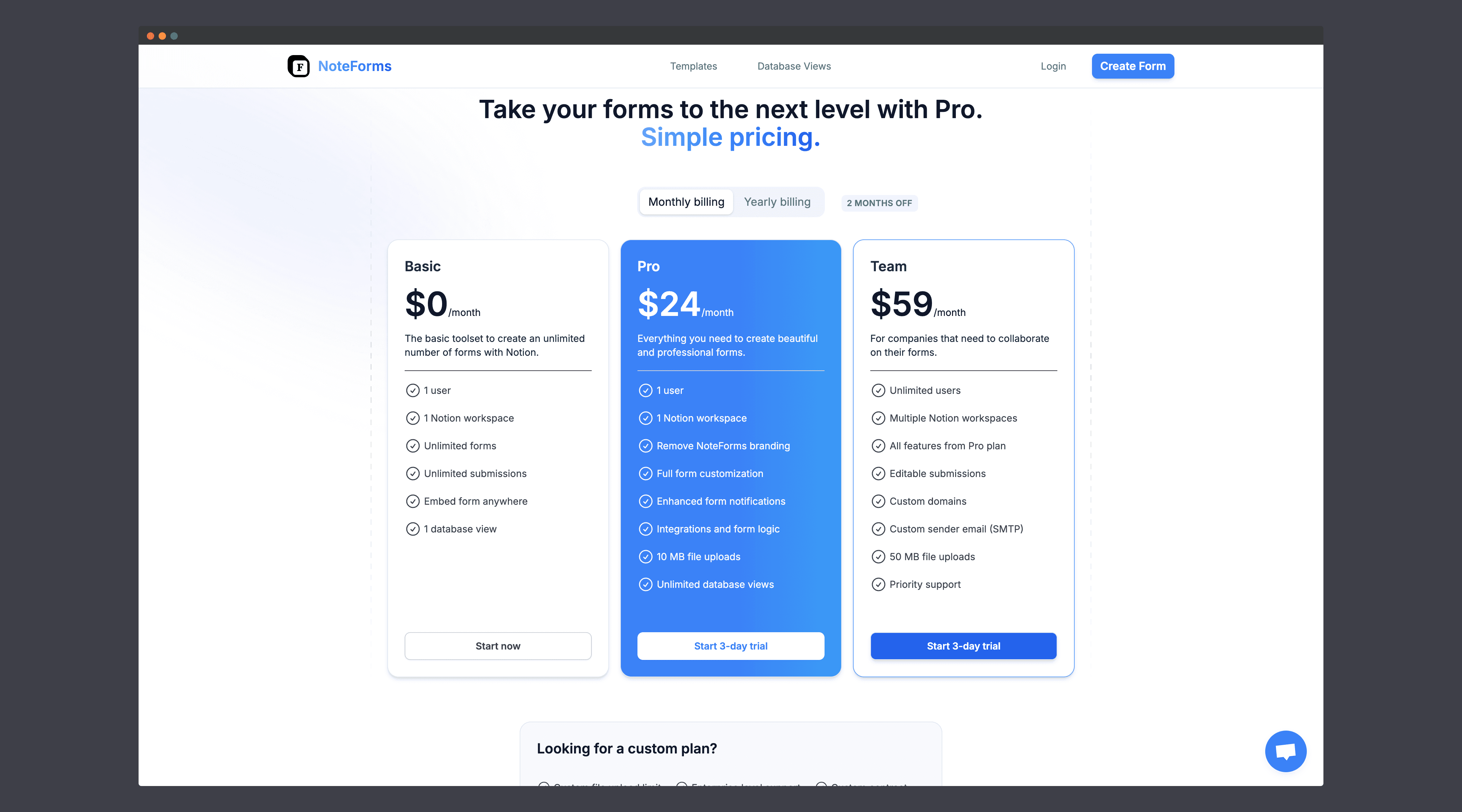
At first, NoteForms was entirely free. Julien didn’t even have a business model—he just liked seeing people use his tool. But after a few months, he reconsidered. Realizing his product had real value, he rolled out a Pro plan for $15/month (now $20/month), offering advanced customization options and additional features.
When the first payment notification came through, Julien was thrilled. “It felt really nice,” he says. Not only was someone willing to pay, but that same customer remains with him to this day. Building a revenue stream allowed him to focus on improving the product without stressing about other income sources.
In time, Julien increased prices—first to $19, then to $24—without losing momentum. He also introduced a team plan, enabling businesses to have multiple users on board, which opened new doors in B2B circles. Julien’s pricing strategy demonstrates that providing real value and listening to customer needs can create a sustainable pricing model.
(A screenshot of NoteForms pricing page)

The Power of the Community
The Power of the Community
Julien’s growth strategy was simple but effective: reach out, get feedback, and keep improving. Early on, he tapped into every Notion community he could find, sharing updates and gathering input. “I basically spammed every Notion-related community I could find. Facebook groups, Reddit, Twitter — even some Slack channels.” he says. Back then, the Notion community was still small and tight-knit, allowing Julien to get away with his scrappy promotional tactics.
Once NoteForms gained traction, word of mouth took over. People loved the product, and with each form created, a small “Powered by NoteForms” note went out, driving SEO and drawing new users to the site. It’s a perfect example of how a viral loop can work wonders, especially when the product is inherently shareable.
Julien’s growth strategy was simple but effective: reach out, get feedback, and keep improving. Early on, he tapped into every Notion community he could find, sharing updates and gathering input. “I basically spammed every Notion-related community I could find. Facebook groups, Reddit, Twitter — even some Slack channels.” he says. Back then, the Notion community was still small and tight-knit, allowing Julien to get away with his scrappy promotional tactics.
Once NoteForms gained traction, word of mouth took over. People loved the product, and with each form created, a small “Powered by NoteForms” note went out, driving SEO and drawing new users to the site. It’s a perfect example of how a viral loop can work wonders, especially when the product is inherently shareable.
Expanding Beyond Notion: Building OpnForm
Expanding Beyond Notion: Building OpnForm
With NoteForms doing well, Julien wanted to experiment beyond the Notion ecosystem. He created OpnForm, a standalone, open-source form builder that functions independently of Notion. This move didn’t just help him diversify his income; it also contributed to the open-source community.
(A screenshot of OpnForm landing page)
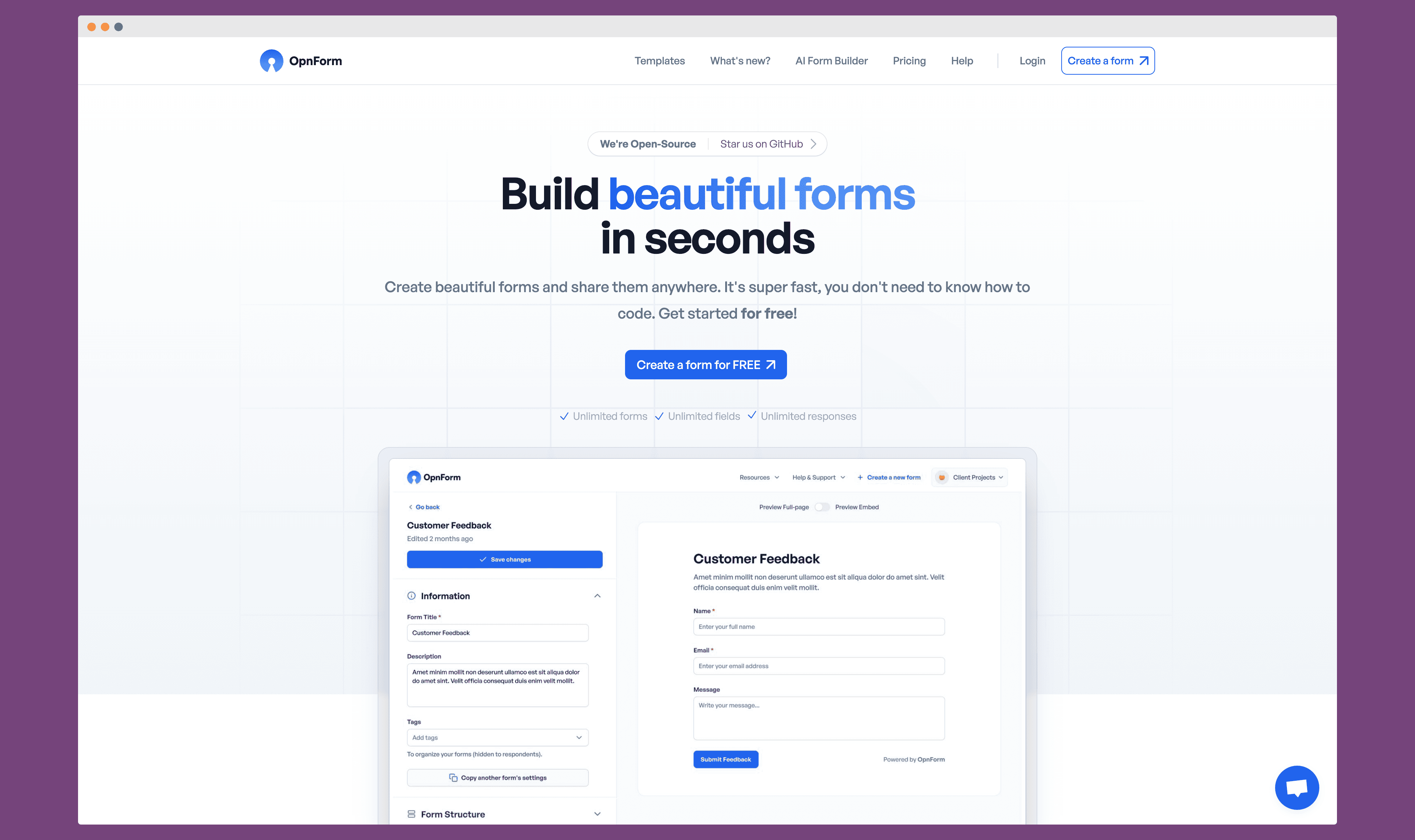
Open-sourcing OpnForm allowed Julien to gather a dedicated user base, many of whom actively contribute by building tools and integrations. This community aspect helped OpnForm grow organically. Users can deploy OpnForm on their own servers or use Julien’s hosted version for a small fee. OpnForm isn’t just a business—it’s an experiment in how open-source projects can create real value for users and founders alike.
With NoteForms doing well, Julien wanted to experiment beyond the Notion ecosystem. He created OpnForm, a standalone, open-source form builder that functions independently of Notion. This move didn’t just help him diversify his income; it also contributed to the open-source community.
(A screenshot of OpnForm landing page)

Open-sourcing OpnForm allowed Julien to gather a dedicated user base, many of whom actively contribute by building tools and integrations. This community aspect helped OpnForm grow organically. Users can deploy OpnForm on their own servers or use Julien’s hosted version for a small fee. OpnForm isn’t just a business—it’s an experiment in how open-source projects can create real value for users and founders alike.
Handling Competition & Platform Risk
Handling Competition & Platform Risk
As NoteForms flourished, Julien faced a growing threat: platform dependency. Notion, the very platform he’d built NoteForms around, was about to release its own native form builder. The news was unsettling. But instead of panicking, Julien saw it as a chance to educate the market further. “The feature will be pretty simple,” he says. “Best-case scenario, it increases awareness for us.”
Julien’s approach here is crucial. Instead of fearing competition, he embraced it, recognizing that platform risk is a part of being a third-party developer. He's also about to launch another form builder tailored for Airtable users, who's native form is pretty much limited for it's users.
As NoteForms flourished, Julien faced a growing threat: platform dependency. Notion, the very platform he’d built NoteForms around, was about to release its own native form builder. The news was unsettling. But instead of panicking, Julien saw it as a chance to educate the market further. “The feature will be pretty simple,” he says. “Best-case scenario, it increases awareness for us.”
Julien’s approach here is crucial. Instead of fearing competition, he embraced it, recognizing that platform risk is a part of being a third-party developer. He's also about to launch another form builder tailored for Airtable users, who's native form is pretty much limited for it's users.
The Freedom & Challenges of Indie Hacking
The Freedom & Challenges of Indie Hacking
Julien’s story is full of successes, but he’s candid about the challenges. Working solo meant handling everything—customer support, coding, marketing—alone. He admits that it's stressful at times. There were days he felt paralyzed by worries about platform risk or bugs. But with time, he learned to manage the pressures and even step back occasionally.
The freedom of indie hacking has been the biggest reward. “I play tennis almost every day. I can go get lunch with my grandma if I want.” he says. It’s a lifestyle Julien wouldn’t trade for anything. The flexibility and autonomy to work on projects he loves, on his own schedule, is priceless.
Julien’s story is full of successes, but he’s candid about the challenges. Working solo meant handling everything—customer support, coding, marketing—alone. He admits that it's stressful at times. There were days he felt paralyzed by worries about platform risk or bugs. But with time, he learned to manage the pressures and even step back occasionally.
The freedom of indie hacking has been the biggest reward. “I play tennis almost every day. I can go get lunch with my grandma if I want.” he says. It’s a lifestyle Julien wouldn’t trade for anything. The flexibility and autonomy to work on projects he loves, on his own schedule, is priceless.
Parting Advice: Build Fast, Start Small
Parting Advice: Build Fast, Start Small
Julien’s advice to aspiring indie hackers is simple yet impactful: “just get started” Creating something quickly—like his weekend-built NoteForms MVP—can give you the momentum to keep going. Don’t wait for perfection. Launch, gather feedback, and refine as you go.
And don’t be afraid to promote your project. Share it in online communities, talk about it on Twitter, or post on LinkedIn. Feedback from real users is invaluable, not just for improvements but for building confidence that your product is valuable.
Julien also points out that with today’s tech landscape, there’s no reason not to start something. With tools like AI, building a project—technical or otherwise—has become more accessible than ever. “Even if you’re not technical, you can still get started these days,”.
Julien’s advice to aspiring indie hackers is simple yet impactful: “just get started” Creating something quickly—like his weekend-built NoteForms MVP—can give you the momentum to keep going. Don’t wait for perfection. Launch, gather feedback, and refine as you go.
And don’t be afraid to promote your project. Share it in online communities, talk about it on Twitter, or post on LinkedIn. Feedback from real users is invaluable, not just for improvements but for building confidence that your product is valuable.
Julien also points out that with today’s tech landscape, there’s no reason not to start something. With tools like AI, building a project—technical or otherwise—has become more accessible than ever. “Even if you’re not technical, you can still get started these days,”.
Key Takeaways from Julien’s Journey
Key Takeaways from Julien’s Journey
Speed matters. Getting to market fast, even with a basic version, can put you ahead of competitors.
Embrace feedback and community. Engage with early users, gather input, and use it to improve your product.
Start small, iterate, and grow. Julien’s product wasn’t perfect at first, but regular improvements kept users engaged.
Diversify to mitigate platform risk. Julien created OpnForm to reduce dependency on Notion, expanding his reach and user base.
Value freedom over everything. Indie hacking gave Julien control over his time and lifestyle, a benefit that’s priceless.
Speed matters. Getting to market fast, even with a basic version, can put you ahead of competitors.
Embrace feedback and community. Engage with early users, gather input, and use it to improve your product.
Start small, iterate, and grow. Julien’s product wasn’t perfect at first, but regular improvements kept users engaged.
Diversify to mitigate platform risk. Julien created OpnForm to reduce dependency on Notion, expanding his reach and user base.
Value freedom over everything. Indie hacking gave Julien control over his time and lifestyle, a benefit that’s priceless.
Boost your business visibility to thousands of engaged readers!
Get Featured on 100+ pages across the FounderNoon website.
One month stretch ⇢ $100
Three-month stretch ⇢ $250
Boost your business visibility to thousands of engaged readers!
Get Featured on 100+ pages across the FounderNoon website.
One month stretch ⇢ $100
Three-month stretch ⇢ $250
Final Thoughts
Final Thoughts
Julien Nahum’s story is an inspiring example of what can happen when you combine passion, speed, and a little bit of scrappiness. From a quick weekend project to a profitable business, Julien has shown that building something meaningful doesn’t always require a grand plan—just a solid idea, quick execution, and a willingness to grow as you go.
P.S. I’ve got a weekly newsletter where I share stories about founders who have started successful online businesses, growth strategies, business ideas, and tips to start/grow your own business. I would love for you to join here
Shoot me a DM if you want to share your story or visit this page to submit your information 💌
- h/t Indie Hackers, Julien Nahum's blog, Wannabe Entrepreneur, High Signal⇢ Great resources
Julien Nahum’s story is an inspiring example of what can happen when you combine passion, speed, and a little bit of scrappiness. From a quick weekend project to a profitable business, Julien has shown that building something meaningful doesn’t always require a grand plan—just a solid idea, quick execution, and a willingness to grow as you go.
P.S. I’ve got a weekly newsletter where I share stories about founders who have started successful online businesses, growth strategies, business ideas, and tips to start/grow your own business. I would love for you to join here
Shoot me a DM if you want to share your story or visit this page to submit your information 💌
- h/t Indie Hackers, Julien Nahum's blog, Wannabe Entrepreneur, High Signal⇢ Great resources
People Also Ask
People Also Ask
What is NoteForms?
NoteForms is a form builder extension that integrates directly with Notion. It allows users to create forms and collect data seamlessly within their Notion workspace, making it easier to manage and organize information.
Is NoteForms Free?
Yes, NoteForms has a free version available! Users can access the basic features without any cost. For those looking for advanced capabilities—like added customization, enhanced security, and team functionality—there’s also a Pro plan starting at $24 per month.
Who is Julien Nahum?
Julien Nahum is the creator of NoteForms. He’s a 28-year-old indie hacker and developer from Paris who built NoteForms over a few days when Notion released its API, making it the first form builder for Notion.
What is NoteForms?
NoteForms is a form builder extension that integrates directly with Notion. It allows users to create forms and collect data seamlessly within their Notion workspace, making it easier to manage and organize information.
Is NoteForms Free?
Yes, NoteForms has a free version available! Users can access the basic features without any cost. For those looking for advanced capabilities—like added customization, enhanced security, and team functionality—there’s also a Pro plan starting at $24 per month.
Who is Julien Nahum?
Julien Nahum is the creator of NoteForms. He’s a 28-year-old indie hacker and developer from Paris who built NoteForms over a few days when Notion released its API, making it the first form builder for Notion.
